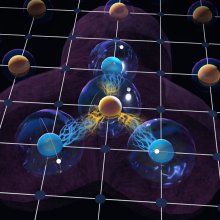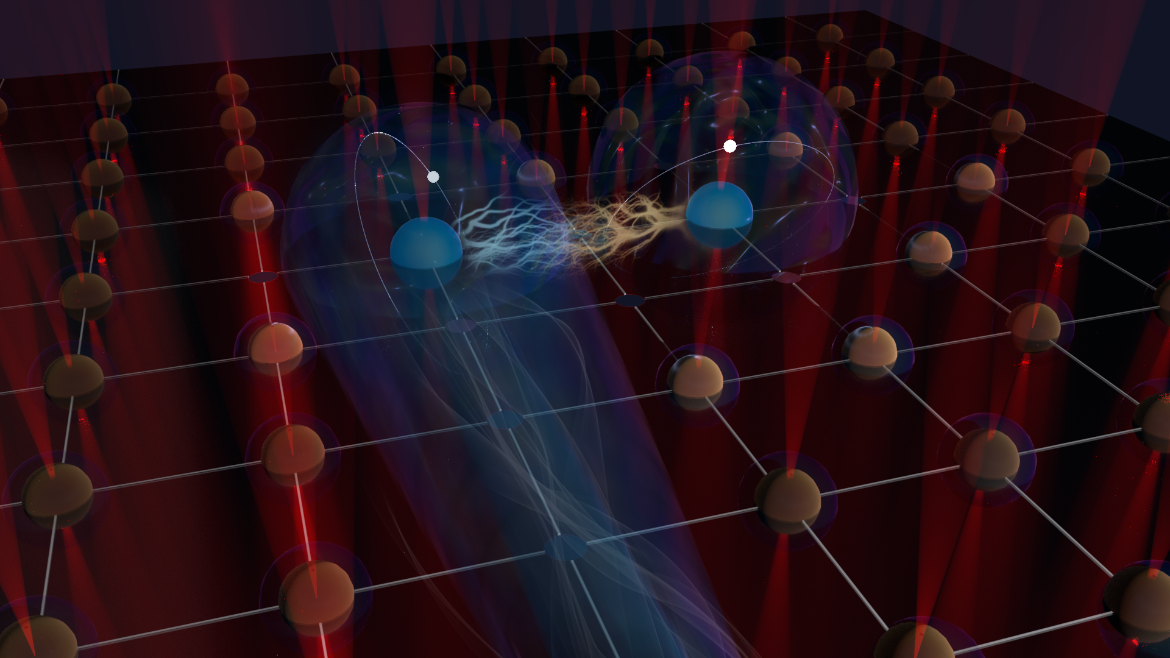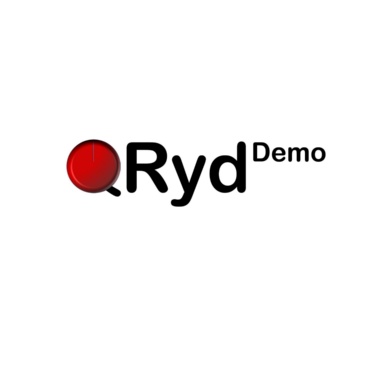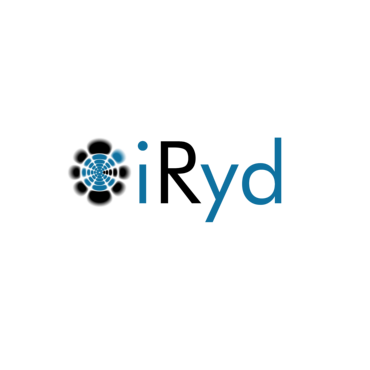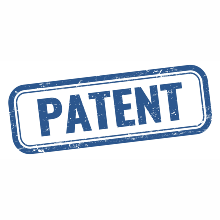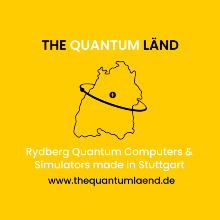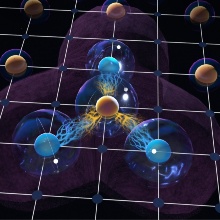Learn more about...
The Project
The race to develop a fully functional quantum computer is on. It is not yet decided which underlying physical principle will prove most successful, especially where upscaling the computer from a mere demonstrator towards a fully functioning device to solve real problems is concerned. So far, the latter is not yet possible and thus a defining goal for current research around the world.
In the past years, quantum logic gates based on Rydberg atoms have been significantly advanced, so that they can now be considered on par with ion traps and superconductors when it comes to functional parameters within a quantum computer. Rydberg atoms are highly excited atoms where the outermost electron is extremely far away from the atomic core. Accordingly, the atomic diameter is up to 10,000 times larger than that of an atom in ground state. However, it is unlike an ion as the outer electron is not free but still bound to the atomic core, albeit extremely weakly. Thus, it reacts sensitively to external electromagnetic stimuli and interacts strongly and controllably with neighboring Rydberg atoms. This behavior provides the basis for the realization of fast quanutm logic gates.
Our project aims to realize a quantum computer demonstrator with several hundred qubits based on individually controlled Rydberg atoms. This field has been pioneered by various groups in Europe and the USA. In our project we want to bring this technique to a stage where it can directly compete with other established quantum computing platforms and be offered to customers on the market.
Partners and Funding
Project Publications
- Hölzl, C., Götzelmann, A., Pultinevicius, E., Wirth, M., Meinert, F.: Long-Lived Circular Rydberg Qubits of Alkaline-Earth Atoms in Optical Tweezers. Phys. Rev. X. 14, 021024 (2024). https://doi.org/10.1103/PhysRevX.14.021024.
- Hölzl, C., Götzelmann, A., Wirth, M., Safronova, M.S., Weber, S., Meinert, F.: Motional ground-state cooling of single atoms in state-dependent optical tweezers. Phys. Rev. Res. 5, 033093 (2023). https://doi.org/10.1103/PhysRevResearch.5.033093.
- Pagano, A., Weber, S., Jaschke, D., Pfau, T., Meinert, F., Montangero, S., Büchler, H.P.: Error budgeting for a controlled-phase gate with strontium-88 Rydberg atoms. Phys. Rev. Research. 4, 033019 (2022). https://doi.org/10.1103/PhysRevResearch.4.033019.
We are looking for motivated new team members!
We have recently started a new project aiming to realize a Quantum Computer Demonstrator with several hundred qubits based on individually controlled Rydberg atoms.
In this context, we have openings for PhD candidates and Postdocs with strong background in either atom trapping, complex control engineering, or active optics (starting date: March 1st 2021 or later).
Interested in joining us? Please submit your application and/or contact us for detailed information at any time via e-mail!
Contacts:
Project Team
Project News
Contact
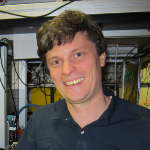
Florian Meinert
Group Leader
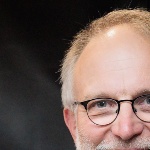
Tilman Pfau
Prof. Dr.Head of Institute


